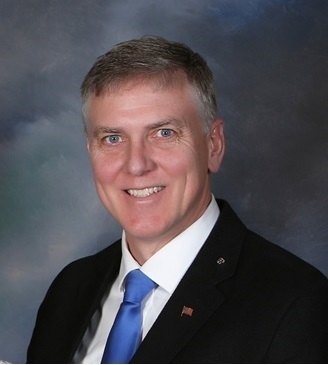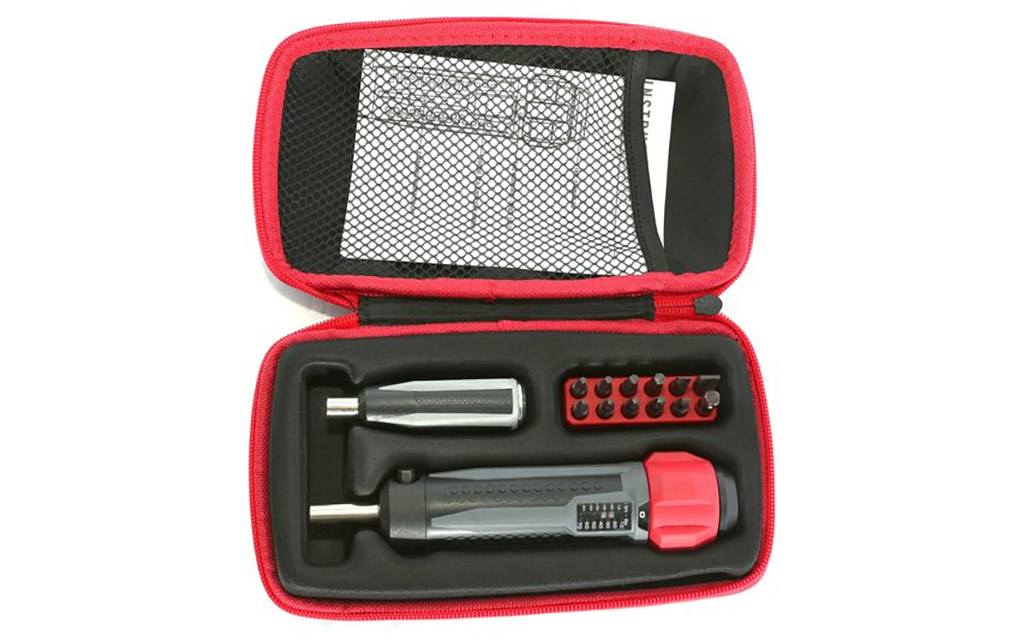Courts across the state went to work adjudicating long-delayed cases in 2022 as restrictions imposed during the COVID-19 pandemic were rolled back.
Regardless of the courtroom outcomes, both sides of the bar agree that the return to some semblance of normalcy was welcome. In chipping away at the backlog, jurors returned noteworthy and eye-popping verdicts, and in some cases defense attorneys walked away with complete wins for their clients.
Here is a look at the most significant litigation results handled by Texas lawyers in 2022, as compiled by the Texas Lawbook.
BMC’s $1.6 billion fraud verdict against IBM
An eight-day bench trial before U.S. District Judge Gray Miller ended with Houston-based BMC Software securing a massive $1.6 billion fraud verdict against IBM.
In 106 pages of findings of fact and conclusions of law issued in May, Miller found IBM made material misrepresentations to BMC during contract negotiations that it wouldn’t displace BMC’s products from mutual client AT&T’s mainframe systems but did so anyway.
“IBM is one of the largest technology companies in the world — and it exploited BMC’s justifiable reliance for its own gain, cementing its abdication of good faith and fair dealing in the service of its own self-reliance,” Miller wrote. “IBM’s conduct vis-à-vis BMC offends the sense of justice and propriety that the public expects from American businesses.”
IBM argued AT&T was planning on its own, without input from IBM, to move away from using BMC’s products, pointing to testimony from AT&T representatives to support the argument.
The case is on appeal to the Fifth Circuit. Houston trial lawyer Paul Yetter of Yetter Coleman was the lead lawyer for IBM. Houston litigator Sean Gorman of Bracewell was the lead lawyer for BMC.
A rare, successful COVID-19 business interruption claim
In what is believed to be the first jury verdict in a lawsuit seeking insurance coverage for lost business due to the pandemic, Baylor College of Medicine prevailed in its suit against several Lloyd’s of London syndicates in August.
A Harris County jury awarded the medical school $48.5 million in damages.
The insurer argued that because the virus can be wiped off physical property with disinfectant and doesn’t cause structural damage, the medical school’s property insurance didn’t cover the claim.
But Baylor College of Medicine convinced a jury that the physical presence of the virus on campus caused the loss of income and caused it to incur additional expenses for protective equipment and cleaning.
The case is on appeal to the 14th Court of Appeals, which denied requests for oral arguments in October and will decide the case on submission.
Murray Fogler of Fogler Brar O’Neil & Gray was the lead lawyer for Baylor College of Medicine. G. Brian Odom of Zelle was the lead lawyer for Lloyd’s.
Former Blue Bell CEO beats fraud charges
A criminal fraud trial doesn’t exactly qualify as commercial litigation, but this case the government brought against former CEO Paul Kruse involved one of the most beloved Texas companies: Blue Bell.
A mistrial was declared in August after 10 members of a 12-person jury indicated they would have found Kruse not guilty of felony fraud and conspiracy charges stemming from a 2015 deadly listeria outbreak linked to the company’s creameries. An expert in food safety litigation, Bill Marler of Marler Clark, said after the verdict that prosecutorial overreach was likely to blame for the failed prosecution, saying it was “exceedingly rare” for the government to criminally prosecute someone over food safety.
Had the government charged Kruse under the misdemeanor section of the Food Drug and Cosmetic Act — the same law used to prosecute Blue Bell in September 2020 that resulted in what was at the time the largest-ever criminal penalty in a food safety case — prosecutors could have likely secured a conviction, Marler said.
According to docket entries, the government has decided to retry the case and U.S. District Judge Robert Pitman entered an order in October setting trial for April 10, 2023.
Chris Flood of Flood & Flood was the lead lawyer for Kruse. Matthew Joseph Lash was the lead prosecutor for the government.
VLSI and Intel faced off in third patent trial
VLSI Technology was awarded nearly $949 million in damages by a Waco jury in its third patent infringement lawsuit against Intel that ended in November, bringing the score to 2-1 in the dispute over a patent for information processing technology.
Fortress Investments-owned VLSI alleged its patent was infringed via the server microprocessors Intel manufactures. As of Dec. 22, U.S. District Judge Alan Albright of Waco had yet to enter final judgment in the case.
In March 2021, a separate federal jury in Waco determined Intel had infringed VLSI-owned patents and awarded the company $2.18 billion in damages. But the second trial, in April 2021, resulted in a verdict that Intel had not infringed.
In the third trial, according to court documents, Intel is asking Albright to enter judgment in its favor as a matter of law, though those documents remained sealed to the public.
Andy Tindel of Mann Tindel Thompson was the lead lawyer for VLSI. J. Steven Ravel of Kelly Hart & Hallman was the lead lawyer for Intel.
Judge calls out NFL pension plan’s ‘troubling’ actions
U.S. District Judge Karen Gren Scholer of Dallas offered blunt criticism of the National Football League’s retirement plan after presiding over a six-day bench trial in May, finding the league violated federal law in its quest to limit the pension benefits paid to Michael Cloud, a former running back for the Kansas City Chiefs, New York Giants and New England Patriots.
She wrote that the trial had pulled back the curtain on the inner workings of the retirement plan “and what lies behind it is far from pretty.”
“Behind the curtain is the troubling but apparent reality that these abuses by the board are part of a larger strategy engineered to ensure that former NFL players suffering from the devastating effects of severe head trauma are not awarded … [maximum] benefits,” she wrote.
Out of thousands of former players who filed applications for benefits, only 30 had received maximum benefits at the time of Scholer’s June ruling.
Cloud was drafted into the league in 1999 and played for seven seasons. His football career ended in 2006 after a series of debilitating injuries, notably a concussion suffered Oct. 31, 2004, in a helmet-to-helmet collision with a defensive back.
Cloud’s lead attorney was Christian Dennie of Barlow Garsek & Simon. The retirement plan’s lead attorney was Edward J. Meehan of Groom Law Group.
Charter Spectrum slammed with $7.3 billion damages in murder case
A Dallas County jury of four women and two men awarded the family of a woman who was murdered in her home by a Charter Communications cable technician a staggering $375 million in actual damages and $7 billion in punitive damages.
Dallas County Court at Law Judge Juan Renteria in September entered a final judgment knocking that astounding figure down to $1.14 billion. In a bifurcated damages portion of the trial, the jury returned its verdicts on actual and punitive damages in June and July, respectively.
Betty Thomas, an 83-year-old grandmother, was murdered by Roy Holden in December 2019. Holden was off duty at the time of the robbery and murder, but had made a field call to Thomas’ home the day prior and returned the next day to carry out the crimes, jurors were told.
Chris Hamilton of Hamilton Wingo of Dallas, lead attorney for the Thomas family, told jurors Charter was “a nasty company” with “a culture of malice toward its customers.”
Charter has appealed the ruling to the Fifth Court of Appeals in Dallas, but no briefing had been filed as of Dec. 22. Charter’s lead attorney was Michael H. Bassett of the Bassett Firm.
Austin software company gets $105 million IP win against Ford
A federal jury in Detroit awarded Austin-based Versata Software $105 million in damages in October, agreeing that Ford Motor had misused Versata’s patented software that’s used to configure cars and trucks.
The Automotive Configuration Manager software allows a manufacturer to configure vehicles from billions of possible combinations of parts, features and options by solving mathematical, logical and logistical problems that arise in designing and configuring vehicles.
The award was noteworthy in part because it was secured from a Detroit jury in Ford’s backyard. It was also noteworthy because the case started seven years ago, when Ford asked a court to issue a declaration that it hadn’t misappropriated Versata’s trade secrets.
Versata alleged that some Ford engineers who worked with its software stole those trade secrets to create a replacement software system Ford called Product Definition and Offer. Ford unsuccessfully argued to the jury that its software used “entirely different technologies” than Versata’s.
Houston trial lawyer Steve Mitby of Mitby Pacholder Johnson was the lead attorney for Versata. Thomas A. Lewry of Brooks Kushman was the lead attorney for Ford.
NRA, Ackerman McQueen settle high-stakes suit
The National Rifle Association and longtime advertising vendor Ackerman McQueen settled a bitter lawsuit in March, days before trial was set to begin in the Northern District of Texas.
A settlement wouldn’t normally be major news, but this lawsuit featured the NRA accusing Ackerman of fraudulent billing and wrongfully continuing to promote its connection to the NRA after that relationship had been terminated.
Ackerman countered with allegations that the NRA and its lawyer, Bill Brewer, tried to “destroy” Ackerman’s business “in a desperate attempt to deflect attention from the NRA’s gross financial mismanagement.” Ackerman also attempted to have Brewer removed from representing the NRA in the case.
And those allegations prompted an investigation by the New York Attorney General, which triggered a bankruptcy filing by the NRA in the Northern District of Texas in a bid to relocate the organization to Texas.
A federal bankruptcy judge in May 2021 rejected the bankruptcy declaration, finding it wasn’t filed “in good faith.”
Bill Brewer of Dallas represented the NRA. Dallas trial lawyer Michael Gruber, now a partner at Greenberg Traurig, represented Ackerman.
Defense win for AMLI Residential in $38 million dispute
AMLI Residential Chairman Gregory Mutz was cleared by a Harris County jury in February of any wrongdoing in dealings with Baron Real Property Holdings during the 2012 sale of a $57 million luxury apartment complex in Houston.
Baron had accused Mutz of fraud, breach of contract and negligent misrepresentation during the deal and said it later discovered “significant defective conditions” that entitled it to $38 million in damages.
But the jury handed AMLI a complete victory and determined that Baron should pay AMLI $5.8 million in attorney fees.
Harris County District Judge Donna Roth denied Baron’s motion for a new trial in May, and Baron has since appealed to the First Court of Appeals, but no briefs had been filed as of Dec. 22.
Jeremy Fielding of Kirkland & Ellis and Kartik Singapura of Bell Nunnally – both Dallas trial lawyers – were co-lead attorneys for Mutz. Bill Helfand of Lewis Brisbois Bisgaard & Smith was the lead attorney for Baron.
Meta served $174 million loss in Austin IP trial
Meta Platforms was found by a federal jury in Austin to have infringed the patents belonging to a messaging app developer, Voxer, and awarded Voxer $174 million in damages in September.
The suit was tried before U.S. District Judge Lee Yeakel after Meta successfully argued it needed to be removed from U.S. District Judge Alan Albirght’s courtroom. The jury determined that Meta’s two subsidiaries, Instagram Live and Facebook, infringed on two patents and owes Voxer an ongoing royalty for using the technology.
The suit alleged Facebook took confidential information Voxer disclosed during negotiations in 2012 about a potential partnership and used it to launch Facebook Live and Instagram Live.
Meta started challenging the verdict in the trial court in October, according to court records, asking Yeakel both for a new trial and to enter judgment in its favor as a matter of law, requests Voxer has opposed.
The law firms Keker Van Nest & Peters and Potter Minton represented Meta. Quinn Emanuel Urquhart & Sullivan and Mann Tindel Thompson represented Voxer.
For a longer version of this article, please visit TexasLawbook.net.














